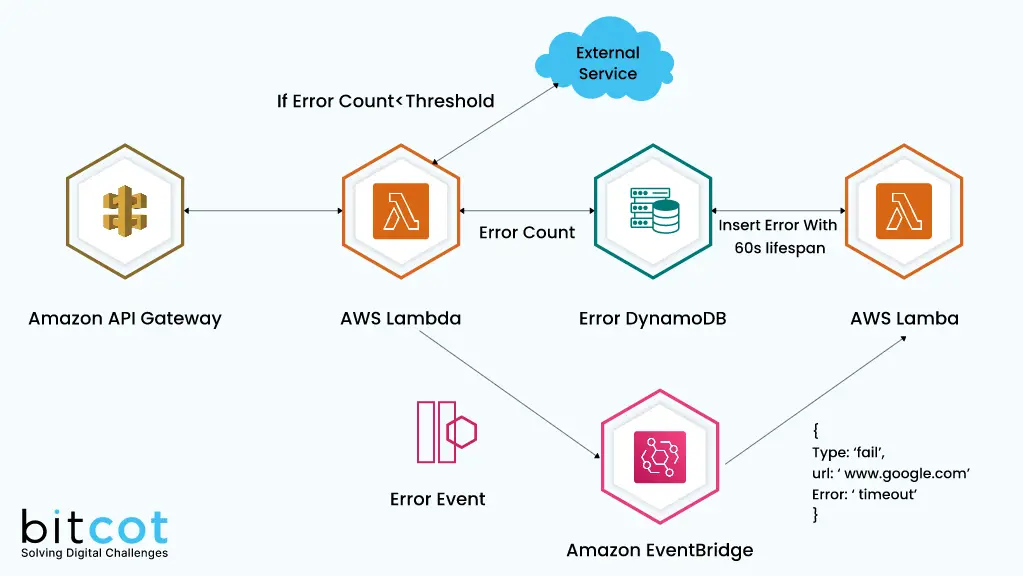
The success of an organization lies in the pace that software development undergoes throughout this fast evolving digital world. Numerous IT firms have made transformations over time with the technological trends and advanced software delivery operations.
On this verge of development, DevOps grew beyond expectations and began to serve several benefits to the business functions of the organizations.
There has been a huge rise in the preference of organizations for DevOps since it incorporates an intuitive work culture altogether. Hiring DevOps for your company is an important process that consists of many processes that bind to each other.
This includes software development, testing, deployment and other related processes promptly, reliably and persistently.
DevOps has not only been able to accelerate the software delivery process but also has added to the enhanced customer experience, timely failure detection, cost savings, quick recovery, and so on.
Apart from the benefits listed above, there is a concern that forces organizations to be aware, during the DevOps transformation journey. How to measure the ROI of DevOps? Let’s take a sneak peek at the sections that discuss these in detail.
DevOps for Business: A Quick Overview

DevOps methodology begins with the progress of your internal organization. Companies use powerful open source tools like Github actions for DevOps to automate the software development process. The core aspect to know about DevOps is that it is the combination of Developers and Operations.
DevOps is an integrated process—with the streamlined communication between your team, operational goals, and Developers’ goals, your business will:
• Facilitate quick incident resolution
• Release new features fast
• Minimize risks with process automation
• Improve the satisfaction of both developers and customers
As per the IDC report, the global value of the DevOps market will take a huge leap from $2.9 billion to $8 billion by 2022. Many IT teams leverage DevOps technology to fuel their businesses and processes of internal organization.
DevOps lets you maintain a sync with all the recent trends and great practices. With DevOps, you can create the best plan for your organization not only to enhance automation but also to scale up business growth for high scalability.
Why Should You Measure DevOps ROI?

Return on Investment (ROI) refers to the measure of performance to analyze the extent of return for a specific investment.
Here is the basic formula of ROI calculation, which you probably already know.
Return on Investment (in percentage) =(The existing value of Investment – Investment cost)/ Investment cost * 100
Simply put, ROI or Return of Investment is the ratio between net profit and the cost of investment you make for any business.
However, why should we measure the ROI? ROI underlines the measurement of the effectiveness of the investment based on profitability.
Before you start a new project, ROI calculation is a crucial step that lets you plan the project, anticipate the costs involved, and lay down the objectives to build successful projects.
When you calculate ROI, it can let you monitor if the project is possible and you can understand how to start doing it. Additionally, it is also an added value when you wish to source the budget from the top management.
Before you move ahead to present the ideas to the board, it is great when you have numbers that can back up your project.
You should be able to prove to the organization that the project you wish to kickstart brings more value than the initial investment.
Though certain projects make it easier to calculate the ROI, some other projects like DevOps make it complicated. Hence, you should use metrics that can let you measure the ROI and set organizational objectives.
The Impact of DevOps on ROI
 Software releases are not persistent in a non-DevOps world— they can contain features, changes and the latest updates that development teams have built since the previous release. Every code the developer builds but not being shipped creates no value to your businesses.
Software releases are not persistent in a non-DevOps world— they can contain features, changes and the latest updates that development teams have built since the previous release. Every code the developer builds but not being shipped creates no value to your businesses.
Similar to Just-In-Time manufacturing, developers can generate the value and accelerate the velocity in which the code works to deliver and complete the process.
In this world of the digital revolution, DevOps engineers must rely on the best DevOps tools to deploy advanced features and quickly resolve the problems when compared to the competitors.
DevOps focus on making software releases continuous, regular, and automated. Once you hold the capacity to make software releases many times a day, it is not a big task to make an individual push to production.
The conventional releases require many hands on the deck, cumbersome processes, operations teams striving late nights and weekends to fix the problems, and so on.
Won’t it add value to the organization when you have a relaxed, happier, and contented Operations team to proactively resolve the problems? Isn’t it a benefit rather than getting stressed with the frequently failed deployment
How to measure ROI from DevOps

How to choose the ideal ROI measure to calculate the business cases for DevOps practices? It all depends on what is significant to your business.
As the digital transformation extends, the advanced business models and new techniques to interact with customers have changed the value across every segment.
It is essential to understand the unique value your business provides to the users and link the metrics to achieve it successfully.
Be it about reducing the time customer spends to achieve the goals, maximizing the revenue per user, etc; you should relate it directly to the investment you make in DevOps to enhance the key business indicators.
Here are the steps to effectively evaluate ROI from DevOps:
1. Software Development Costs Calculation

While knowing the existing costs you can understand the savings. It begins with analyzing the hourly cost to develop software. The general formula involves the multiplication of the average annual salary for a software developer with the account for employer costs and benefits. Further, multiply the resulting figure by the number of working hours per year.
2. Process Initiation Costs Calculation

In this calculation, you evaluate the costs that appear during the commencement of the processes. It extends from the development process to CI/CD pipeline, data security and finally the protection. With advanced automation tools, this becomes an effortless process. Hence to understand the true investment, you should add the costs of hitting the new automation levels with the new tools and the actual cost of these tools.
3. Time Savings Calculations

The next step is to evaluate the time savings that DevOps tools implementation brings to the businesses. This precise calculation can help businesses to realize the exact financial benefits of the business.
4. Calculating Profits

This final step lets you understand the financial advantages or the monetary value of ROI upon DevOps implementation. To calculate profits, you compare time savings and the cost involved in introducing this process. The calculations for a year result in savings taken for the specific year, along with long-term realization for coming years.
To calculate ROI percentages, the following formula applies:
[(Total savings per hour – Process introduction cost)/ Process Introduction Cost ] * 100Is There a Quick Way to Measure ROI?
Imagine the situation when you don’t have time to relax and evaluate all these ROI values all by yourself! Since you already have the top DevOps tools in the market to tackle the software development processes through automation, you can use a similar method to measure the ROI.
A marketing ROI calculator can help you to get the desired ROI percentage for DevOps. If you don’t find additional time a day for manual computations, this new technology makes it effortless and accurate. It can remove the manual errors and needs no time to recalculate or find errors.
Conclusion
When your business goes digital and beyond conventional, it makes the entire process flawless. DevOps offer faster-automated business operations to help gain more returns.
As we discussed, every DevOps operation doesn’t go perfectly on the first try after you apply. It is crucial to check, measure, counter check and analyze numbers. When you find out ROI, you can learn if you require to modify either the DevOps strategy or plans.
If you wish to minimize the time you spend learning new tools and technologies for DevOps, you can count on BitCot. Our services also let you hire expert DevOps engineers to implement the DevOps ecosystem you opt to integrate into your firm.









